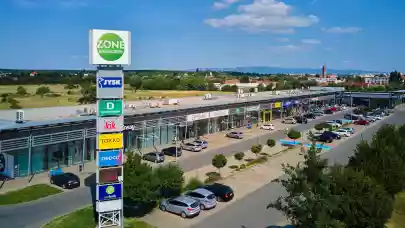
At the European Property Investment Update 2025, organised by Property Forum and RICS, the opening panel convened to discuss the latest trends shaping the continent’s real estate investment landscape. Moderated by Susanne Eickermann-Riepe FRICS, Chair of the RICS European World Regional Board, the session brought together leading voices from across the sector to share their insights on shifting investor appetite, regional dynamics, sustainability, and the evolving strategies required to navigate a complex market.
Christoph Schuetz, Executive Director at J.P. Morgan, offered an optimistic view of current market conditions, particularly in the debt sector. “The mood in the market is surprisingly positive. Equity markets are near all-time highs, and this optimism is clearly reflected in the debt markets as well,” he explained. “Just this month, J.P. Morgan placed seven real estate bonds totalling over four billion euros, and we’ve seen risk premiums on investment-grade real estate debt narrow dramatically, signalling strong investor confidence.”
Simon Stacey, European Head of Asset Management & Investment at EGLS, highlighted the renewed interest in logistics and the growing importance of sustainability. “Investor sentiment is shifting back toward logistics, especially after the price corrections of the past two years,” he noted. “Sustainability is now front and centre for both lenders and purchasers, and we’re seeing a clear preference for platform or joint venture structures that offer transparency and robust governance.”
Andrei Boca, Leasing Director at Globalworth, provided insight into the Central and Eastern European office markets. “Prior to 2020, developers were eager to launch new projects, but the pandemic and regulatory hurdles brought everything to a standstill,” he said. “Now, with few new developments and many leases extended, we’re in a situation where companies looking to expand are finding that the newest buildings in Bucharest date back to 2021, creating both challenges and opportunities for the market.”
Pavlos Gennimatas, Head of Living, Europe at Hines, focused on the resilience of the residential sector. “We’re starting to see core capital gradually return to the living sector, with early signs that investors are willing to pay higher prices for quality assets,” he observed. “The fundamentals of supply and demand in most European cities remain strong, and with fewer building permits being issued, the need for housing will only intensify in the coming years.”
Edward Pugh, Head of Investment Management Sustainability at PATRIZIA, addressed the evolving role of sustainability in investment decisions. “Sustainability has moved beyond being a box-ticking exercise; it now needs to deliver real value,” he stated. “Europe is increasingly viewed as a safe haven for sustainable investment, especially as global investors seek long-term stability and regulatory clarity.”
Jonathan Ratnage, Managing Director and Head of Asset Management Europe at PineBridge Benson Elliot, reflected on the retail sector’s transformation. “This is an exceptionally interesting time for retail, with capital becoming much more targeted and strategic,” he commented. “When evaluating investments, it’s essential to have a clear, robust business plan and a deep understanding of both tenants and consumers to ensure long-term asset performance.”
As the panel concluded, a consensus emerged that while the European property investment market faces ongoing challenges, it is also demonstrating remarkable adaptability and innovation. The interplay of capital flows, sustainability imperatives, and sector-specific strategies will continue to shape the market’s trajectory, offering both risks and opportunities for forward-thinking investors.



